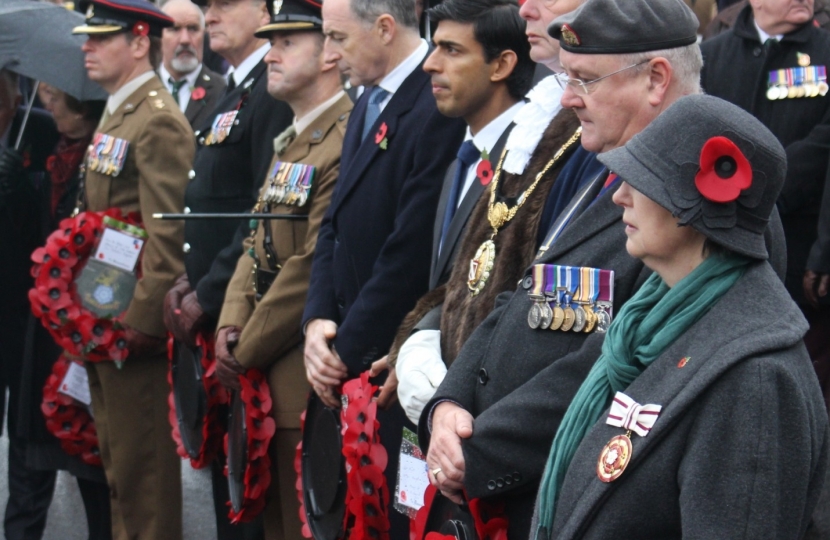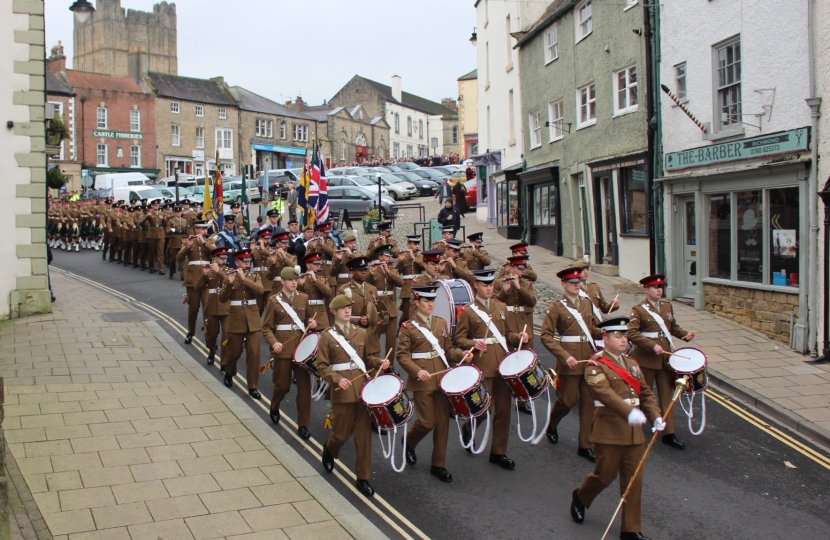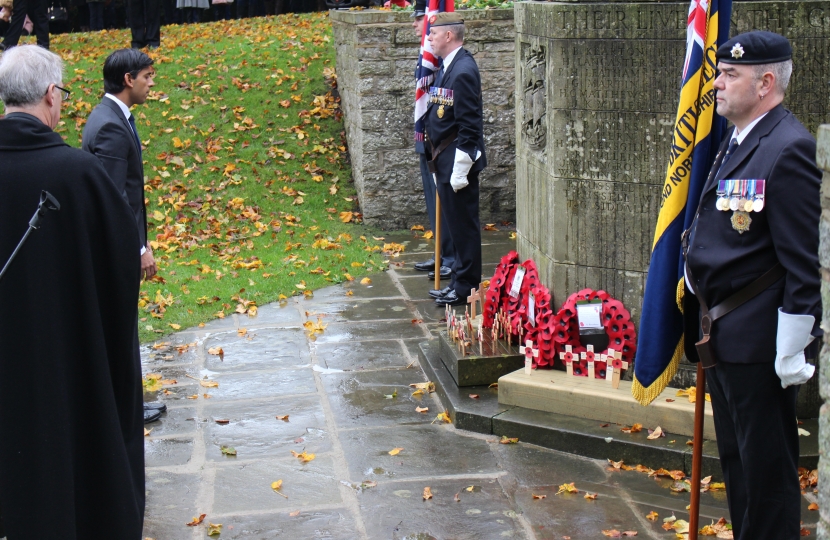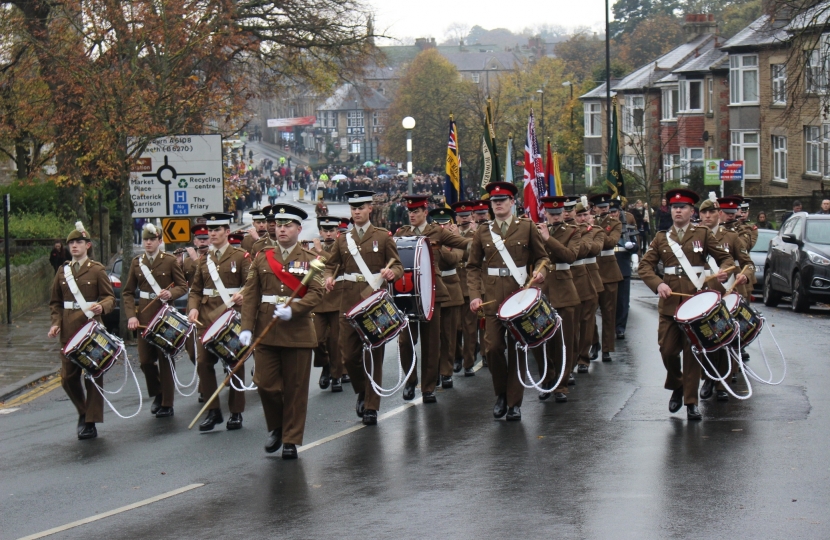STANDING in Richmond’s Friary Gardens on Sunday, the last strains of the Last Post fading away as hundreds of townsfolk stood in respectful silence, was a truly moving experience for me.
I was attending my first Remembrance Day event since being elected and I was mightily impressed with the way the parade, the service in the parish church and the wreath-laying was organised and also how the people of the town turned out in such numbers to be part of it.
Every man, woman and child was wearing their Poppy with pride and I, together with my wife Akshata, felt privileged to pay our respects, taking part in the wreath-laying ceremonies at the Friary Gardens Cenotaph and then at the Green Howards Memorial at the top of Frenchgate.
All credit to Bob White and his colleagues in the Richmond branch of the Royal British Legion, the town council, St Mary’s Church, the police and the members of the Armed Forces who contributed to the smooth running of the occasion, despite the poor weather.
It was particularly reassuring to see so many young people involved, both in the act of Remembrance and as part of the crowds who witnessed the parade through the town. It disproves the theory that younger generations don’t care about the ultimate sacrifice made by so many of the generations that came before them.
Remembrance was the culmination of a busy weekend of constituency engagements. On Saturday, the weather was even worse for our Fairer Funding for Rural Schools street stall in Northallerton High Street.
Apart from a brief 20-minute respite, it chucked it down all morning so I was very grateful to the many people who took the time to stop and talk to me about the campaign and sign the petition to get a better deal for our children.
The petition was handed over at 10 Downing Street on Monday by the headteacher of Askrigg, Bainbridge and West Burton schools and some of the pupils. Encouragingly, David Cameron has written to me and the many other MPs with rural constituencies saying the Government is fully committed to making schools funding fairer.
Another issue I have been campaigning on since being elected is improved broadband and on Friday the Prime Minister made a welcome announcement about making the provision of broadband with a minimum speed of 10mbs a universal service obligation.
What that means is that households and businesses could demand that minimum level of service as a legal right, putting access to broadband on the same basis as water and electricity supplies.
News of this move emerged when I was in West Witton helping to launch its microwave broadband service. The village’s community broadband project has been part-funded by the Government and is one of six pilots around the country looking at alternative ways to deliver a superfast service.
Microwave technology is just one possible alternative to fibre optic cable which internet service providers could use to serve hard-to-reach rural areas and fulfil the universal service obligation.




